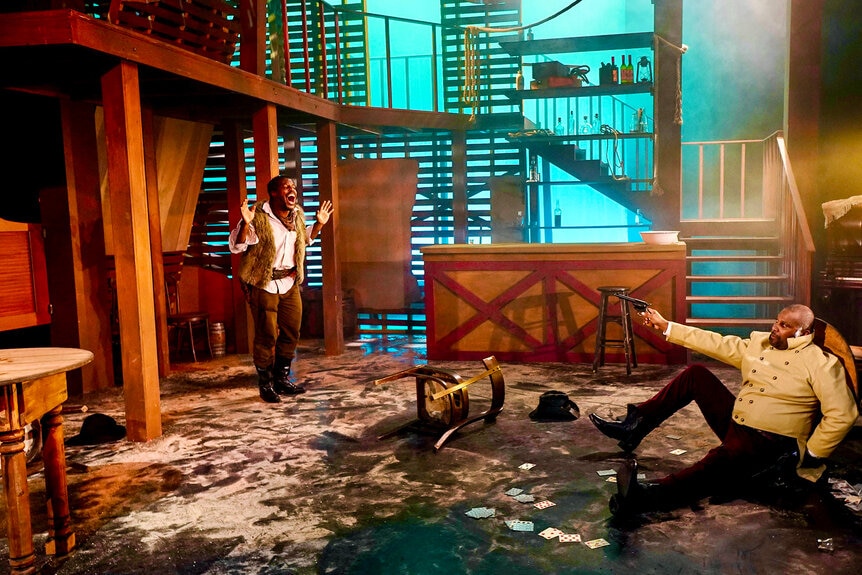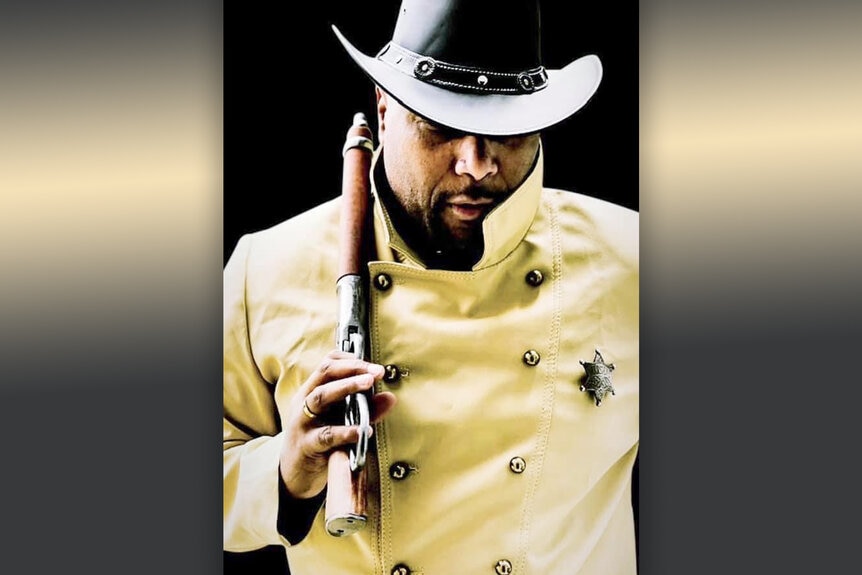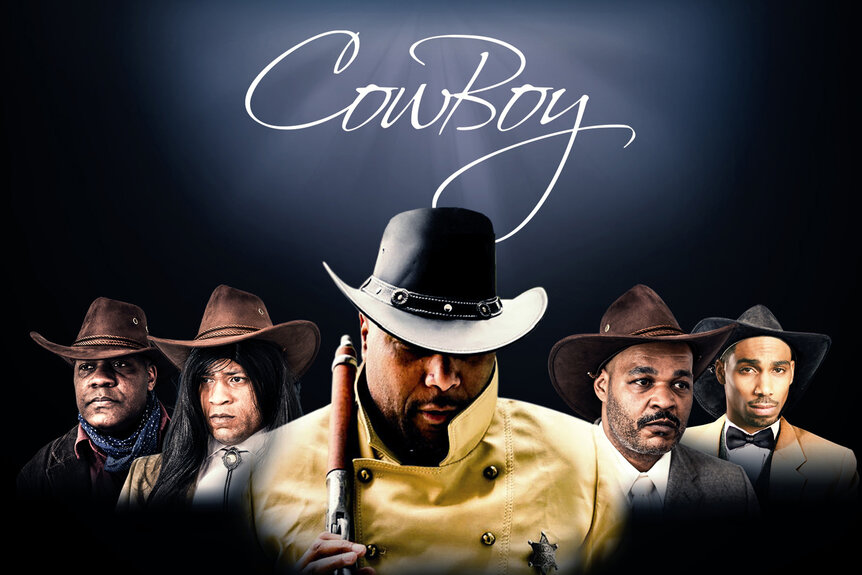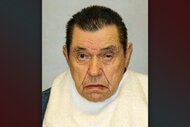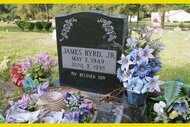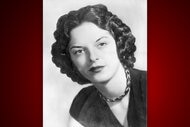Create a free profile to get unlimited access to exclusive videos, breaking news, sweepstakes, and more!
The Story Of Bass Reeves, The Pioneering Black U.S. Marshal, Hits The New York Stage In A Play Off-Broadway
"Cowboy" tells the story of the legendary Black lawman Bass Reeves, and the experiences of other African Americans after slavery.
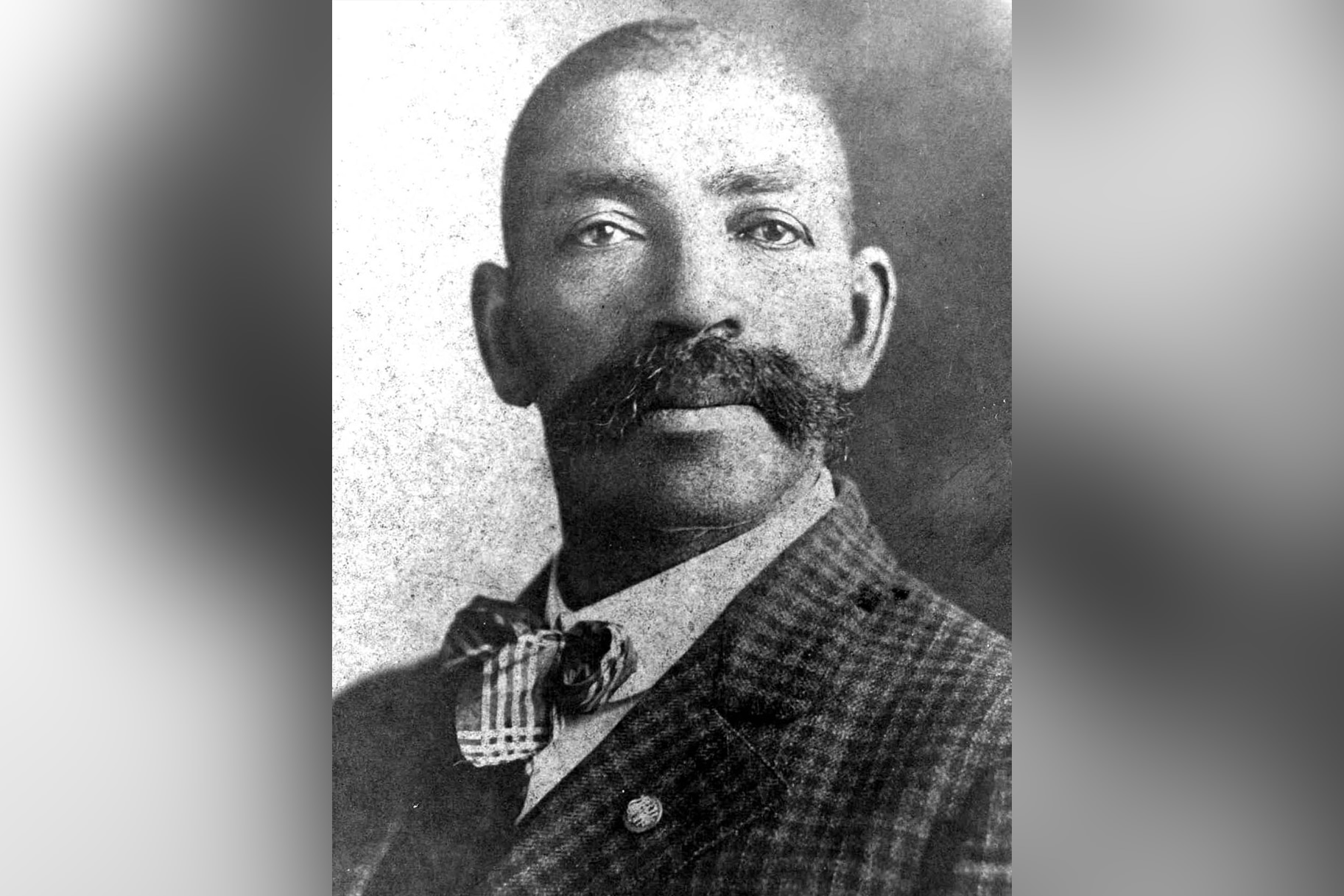
Once whitewashed from history, the story of Bass Reeves, the nation’s first Black deputy U.S. Marshal, is now being shared with Off-Broadway theatergoers in New York City.
"Cowboy" is the first full Western to appear on or Off-Broadway in 80 years, according to playwright Layon Gray, who also stars as Reeves in the production.
Gray told Oxygen.com that he stumbled upon Reeves' story several years ago while researching another project. Two years later, he picked up his notes about Reeves and started writing the play.
RELATED: 'Cold Justice' Is Returning To Investigate More Unsolved Cases — What To Know
He believed so much in the project that he invested his own money and has since tripled his investment.
“I found a book about him and then I just said, 'Hey, let me write this stage play about this incredible deputy marshal that really kind of has been erased from history,'” Gray said.
The play was originally scheduled to run until January at The Actors' Temple but has been extended to March and possibly longer.
"I wrote this play so that all nationalities and races can relate to what’s going on," Gray added. "I always tell people that Bass Reeves is the backdrop to what’s happening in the play. Where did all the African Americans go post-slavery? Where did they go? A lot of them migrated West. So, I said let me tie all that into this particular story and make Bass Reeves the main character as he goes out and searches for two wanted criminals.”
But he notes that the play fulfills something that Black audiences have always wanted to see and experience.
“People are finally discovering that, hey, there was a Black U.S. deputy marshal as good or better than these figures that we've been told who were legendary,” Gray said. “I think that's one of the main things that’s driving people out to see this show.”
Some historians believed that Reeves was the role model for the Lone Ranger. He was born a slave in Arkansas in 1838, but escaped and eventually became a U.S. Marshal, arresting more than 3,000 criminals over his more than 30 years of service. Reeves died in Muskogee, Oklahoma in 1910 at age 71.
"Cowboy" first debuted in 2019 at the National Black Theater Festival in North Carolina. Gray said that tickets sold out within hours, and the same thing happened when the play ran in Miami. It had another run at the festival last year. He said ticket sales for the Off-Broadway production have been strong.
“People come out in their cowboy hats and their cowboy boots, Gray said. “They're really, really into the story of it, because growing up, we didn't have it.”
Gray’s other plays include "Black Angels Over Tuskegee," "All American Girl," and "Black Sparta."
“Western history is like a bridge between slavery ending and the civil rights movement [beginning]. It’s empowering when people are able to see their rightful place in society and the many different avenues that were taken other than what is generally shown in movies, television and textbooks,” Gloria Austin, co-founder of the National Multicultural Western Heritage Museum in Fort Worth, told the Los Angeles Times.
Reeves was fluent in the languages of the so-called "Five Civilized Tribes" — Chickasaw, Creek, Cherokee, Choctaw, and Seminole. He was also a skilled and ambidextrous gunman.
“I’m proud and excited to say that 'Cowboy' was the first narrative about Bass Reeves ever to be seen on stage or on screen as a full show,” Gray said. “So, we’re pretty proud about that. Now, there are other projects that are finally coming to light.”
Hollywood has been trying to tell Reeves’ story for years and is now finally getting long-delayed projects into production.
Last year, Delroy Lindo portrayed Reeves in the Netflix movie, "The Harder They Fall," which also stars Idris Elba, Jonathan Majors, Regina King and Zazie Beetz as real-life outlaws of the West.
Oscar winner Morgan Freeman, who has spent 30 years trying to develop a movie about the lawman, now has a series about Reeves set for Amazon. The show, "Twin Territories," will follow Reeves as he tries to bring law and order to the Indian Territories, and highlight his role in Oklahoma becoming a state, according to Deadline. It’s based on the novel by Art T. Burton, who has written several books about the lawman.
Burton previously told Oxygen.com that Reeves “was the greatest frontier hero in American history. Bar none.”
Freeman won’t portray Reeves in the series but will serve as a mentor for whomever does, Deadline reported.
Freeman told the publication that "Twin Territories" would be a “game changer for movies, for history.”
“I grew up in the movies watching everything, particularly Westerns, and one of the things that really busted me up was the fact that if you were Black in one of these Westerns, you’d better be a comedian. You’d better be funny,” he said. “There were no [Black] heroes, and that’s not American history at all, so here’s a chance to redo that, to straighten out some of the kinks in history.”
As previously reported by Oxygen.com, actor David Oyelowo is starring in the upcoming Paramount+ series "Bass Reeves." Dennis Quaid is co-starring as Sherrill Lynn, a deputy U.S. Marshal, according to Variety. Filming for the series is already underway in Texas. Taylor Sheridan, the creator of the popular series "Yellowstone," is one of the executive producers.
Gray is also planning to develop his play into a movie, but feels that theater is a unique experience.
“Film is great. Film is forever, but I always say theater is the best presentation of any art form because you get to live and breathe in that moment with those actors and take that journey with them," he explained.
